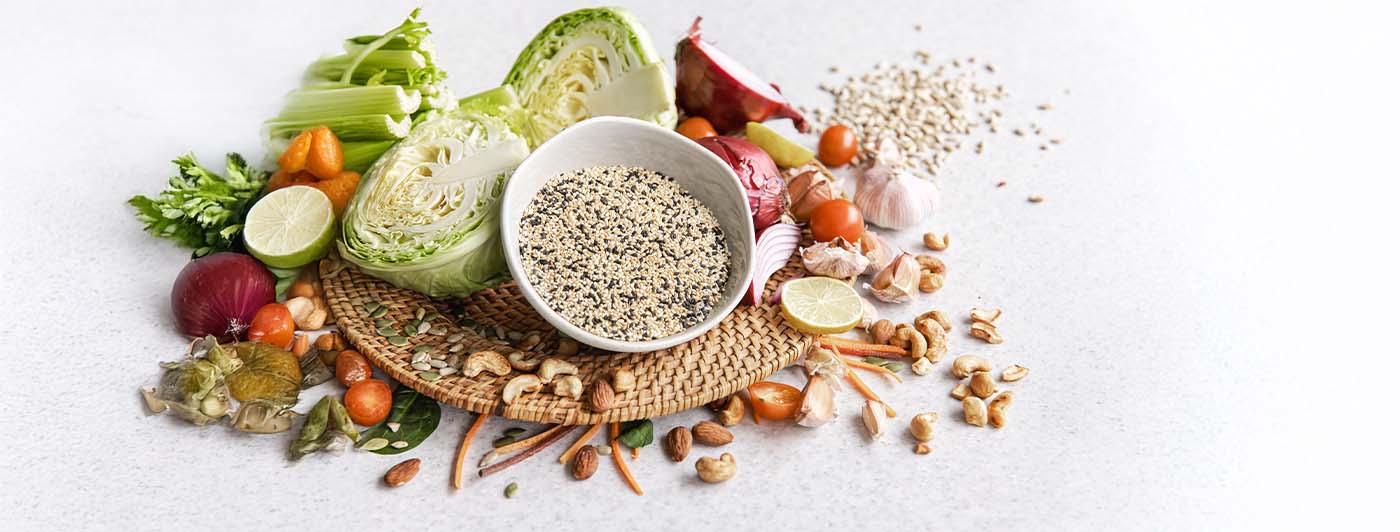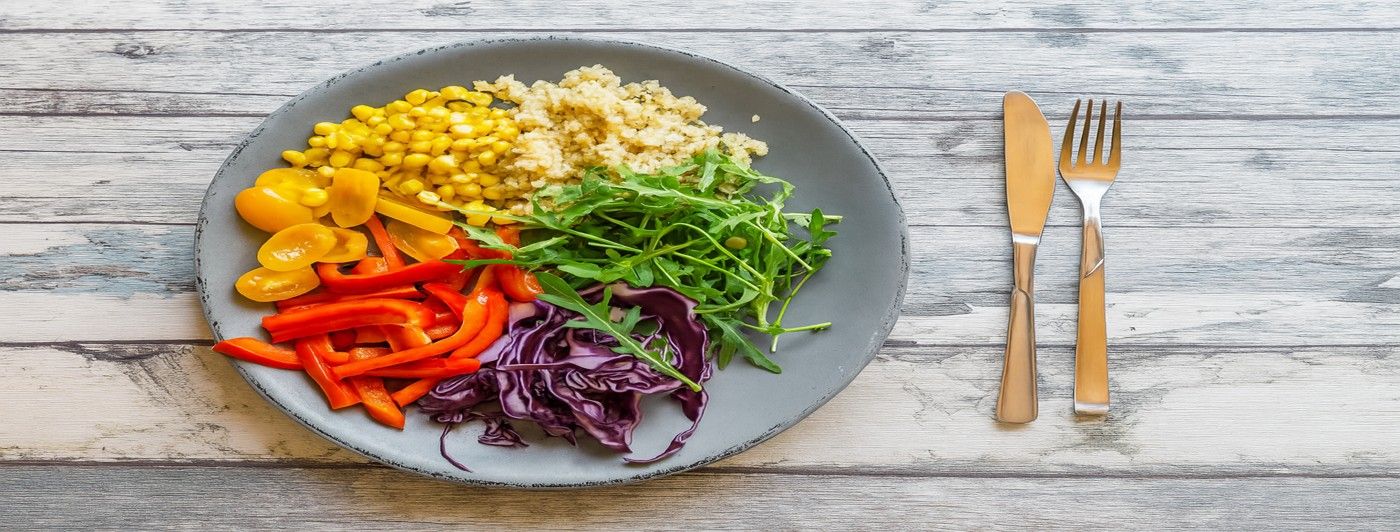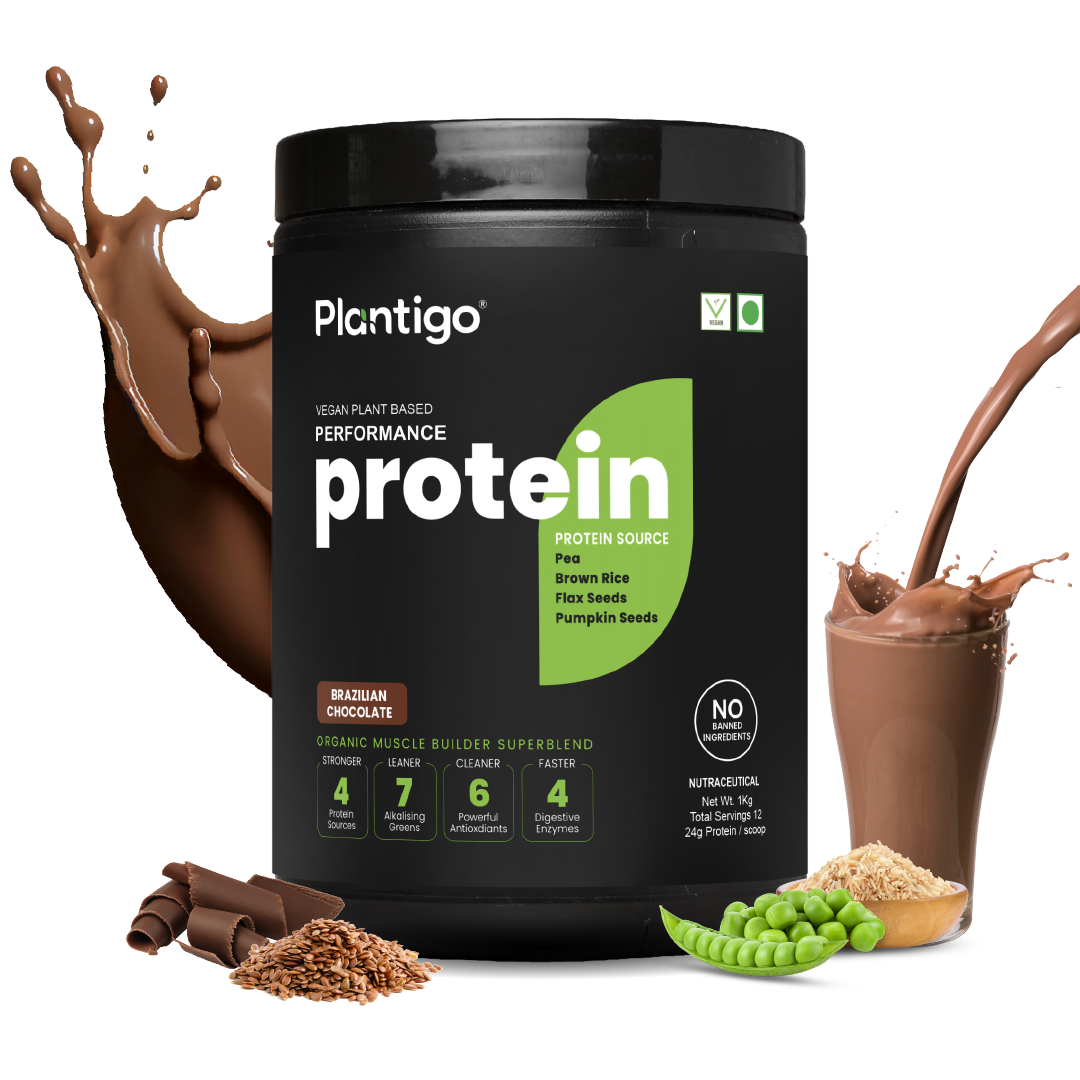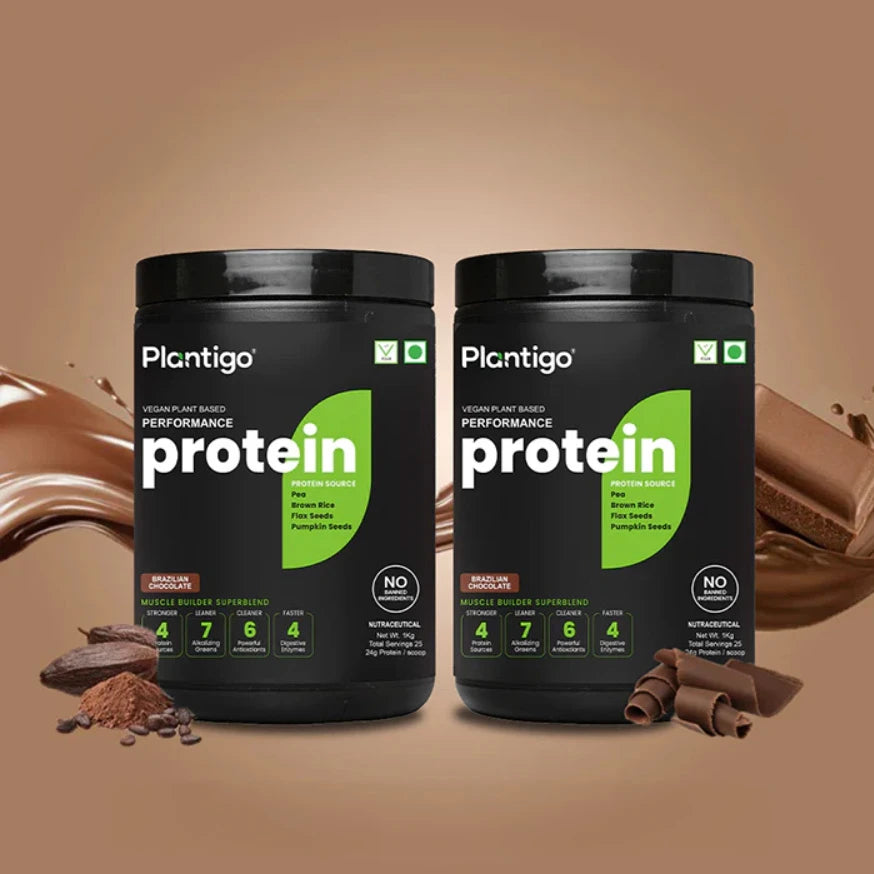Feeling constantly low on energy, catching frequent colds, or struggling with brain fog?
It might not be your lifestyle — it could be a silent deficiency. While we often talk about iron, B12, and calcium, there’s one powerful yet overlooked mineral that plays a critical role in your overall wellbeing: selenium. This trace mineral could be the missing piece in your diet puzzle — especially for those relying on whole foods and plant protein sources to meet their nutritional needs.
Selenium rich foods support immune function, thyroid health, and antioxidant defense—making them essential, especially on vegetarian and vegan diets. By incorporating these nutrient-dense foods, you can meet your selenium needs naturally and deliciously.
Why Selenium Rich Foods Matter
Selenium is a trace mineral with powerful antioxidant properties that neutralize free radicals and prevent cellular damage. It’s crucial for the proper functioning of the thyroid gland, DNA synthesis, and boosting the immune system. Inadequate selenium levels can lead to fatigue, cognitive issues, lowered immunity, and even fertility concerns.
The good news? A wide array of selenium rich foods—many of them vegetarian or vegan—can help you meet your daily requirements easily and tastily.
Top 12 Selenium Rich Foods

1. Brazil Nuts
Brazil nuts are by far the richest known natural source of selenium. Just one nut can contain anywhere from 68 to 91 micrograms of selenium, which is more than 150% of the recommended daily intake. That means a couple of Brazil nuts a few times a week are sufficient for most people.
They’re also high in healthy fats, magnesium, and are part of biotin foods that contribute to healthier skin, hair, and nails. These nuts are a convenient selenium booster—crunchy, satisfying, and perfect on their own or chopped into smoothie bowls and salads.
2. Sunflower Seeds
A handful of sunflower seeds offers a decent dose of selenium, with about 45 micrograms per 100 grams. They’re a great snack on the go and a smart topping for yogurt alternatives, granola, or plant-based smoothies.
What makes them more compelling is their profile as antioxidant rich foods, rich in vitamin E, which works in tandem with selenium to protect your cells from oxidative stress. They’re also a great option for people looking to snack clean while improving their nutrient intake.
3. Brown Rice
Brown rice provides approximately 15 micrograms of selenium per cup, cooked. As a whole grain, it’s packed with B vitamins, fiber, and complex carbs—making it one of the most balanced selenium rich foods for daily meals.
Pair brown rice with lentils or tofu, and you’re looking at a nutrient-dense bowl rich in selenium, fiber, and plant protein. It’s also a helpful ally in meeting your daily protein requirement, especially when aiming for complete amino acid profiles.
4. Spinach
Spinach is a leafy green superfood that provides small amounts of selenium but contributes to your daily needs when consumed regularly. Beyond selenium, it's loaded with iron, folate, and vitamin K, making it a core part of any plant-based diet.
Spinach is also among fiber rich vegetables that promote healthy digestion and gut health. Whether tossed into smoothies, soups, or dals, this versatile veggie adds value in more ways than one.
5. Mushrooms (Shiitake, White Button)
Mushrooms naturally absorb selenium from the soil, making them great plant-based sources. A cup of cooked mushrooms provides 10–20 micrograms of selenium. The actual amount can vary depending on the growing environment.
Shiitake and white button mushrooms also contain polysaccharides that support immune health. These fungi are often found in plant based protein powder blends due to their umami flavor and nutritional benefits. Sautéed with garlic or added to broths, they make selenium intake effortless and tasty.
6. Chia Seeds
Chia seeds provide roughly 55 micrograms of selenium per 100 grams and are also rich in omega-3 fatty acids, calcium, and fiber. Their antioxidant content places them comfortably in both selenium rich foods and antioxidant rich foods categories.
Some of the top chia seeds benefits include improved digestive health, enhanced heart health, and stabilized blood sugar. Chia seeds can be added to smoothies, overnight oats, or used as an egg substitute in vegan baking.
7. Oats
Whole oats offer around 23 micrograms of selenium per 100 grams and are a fantastic breakfast base. They’re rich in beta-glucan, a type of soluble fiber known to lower cholesterol levels and support immune function.
Oats also help meet your daily protein requirement when combined with nuts, seeds, or a scoop of the best plant based protein. They can be cooked or soaked overnight for a heart-healthy, selenium-boosting meal.
8. Whole-Wheat Bread
Whole-wheat bread provides a double advantage: fiber and selenium. Two slices can deliver up to 30 micrograms of selenium, especially if made from selenium-rich wheat. It’s a functional food that integrates easily into your daily routine.
When paired with hummus or nut butter, whole-wheat bread becomes a complete mini-meal, delivering a combination of fiber, plant protein, and essential minerals.
9. Garlic
Though not a major source of selenium by volume, garlic concentrates selenium compounds when grown in selenium-rich soil. More importantly, it boosts the bioavailability of selenium from other foods and supports liver detoxification.
Garlic is also famed for its antimicrobial and anti-inflammatory properties. Sauté it into your meals or blend it into dressings—garlic makes everything taste better while subtly enhancing the absorption of selenium rich foods.
10. Green Peas
Green peas offer modest amounts of selenium, but their role in this list is cemented by their protein and fiber content. They’re often overlooked as plant protein sources but offer a complete nutrition profile that’s ideal for plant-based eaters.
Add them to pasta, curry, or quinoa bowls for a selenium-friendly and satisfying addition. For an extra boost of flavor and nutrition, try tossing in a handful of roasted groundnut—the combination adds healthy fats, crunch, and a complementary plant-based protein source. They’re also a sneaky way to get children and picky eaters interested in nutrient-dense veggies.
11. Lentils
Lentils are protein-packed pulses that offer selenium alongside a rich mix of iron, zinc, and folate. A cooked cup gives around 6 micrograms of selenium, and because they are often consumed in larger portions, their cumulative contribution is significant.
They pair wonderfully with rice, creating a complete plant protein source and helping you meet your daily protein needs affordably and deliciously. You can boost the selenium and protein content even further by adding a scoop of plant based protein powder into lentil soups or stews. Whether in dals, soups, or salads, lentils deliver your selenium in an earthy, hearty format.
12. Sun-Dried Tomatoes
Sun-dried tomatoes concentrate nutrients, including selenium, making them a surprising addition to this list. They also offer powerful antioxidants like lycopene, placing them firmly among antioxidant rich foods.
With their bold, tangy flavor, sun-dried tomatoes can elevate pastas, flatbreads, and grain bowls. They’re especially delicious when paired with whole grains or mashed into dips.
How to Use Selenium Rich Foods Daily
|
Meal |
Incorporation Ideas |
|
Breakfast |
Oatmeal with chia seeds, sunflower seeds, and a scoop of plant based protein powder |
|
Snack |
Brazil nuts or garlic-roasted sunflower seeds |
|
Lunch |
Brown rice with lentils, peas, and spinach |
|
Dinner |
Whole-wheat toast with mushroom and garlic topping; quinoa with sun-dried tomatoes |
|
Add-ons |
Sprinkle chia seeds into smoothies; include garlic in stir-fries; top salads with sunflower seeds |
Bonus Nutrition Tip
If you're also interested in nutrients like vitamin B12 fruits and vegetables, it’s important to note that true B12 is not found naturally in plants and may require fortified foods or supplements. But selenium-rich diets work synergistically with B-complex vitamins and biotin foods to support optimal energy and metabolic health.
By combining selenium rich foods with fiber rich vegetables, plant protein, and clean plant-based options, you’ll build a holistic nutrition strategy that benefits skin, mood, energy, and longevity.
Final Thoughts
Selenium may be needed only in trace amounts, but its benefits are anything but small. By adding a variety of selenium rich foods—like Brazil nuts, mushrooms, oats, and lentils—you’re making a powerful investment in your long-term health without depending on supplements.
So why wait?
Start today by adding just one or two of these nutrient-dense foods to your meals. Your immune system, thyroid, and energy levels will thank you. Small, intentional changes—like choosing selenium-rich, plant-powered ingredients—can create a ripple effect of better health and vitality.
Take charge of your nutrition—one bite at a time.
Frequently Asked Questions
1. What food is highest in selenium?
Brazil nuts are the food highest in selenium. Just one Brazil nut can contain 68 to 91 micrograms of selenium, which exceeds the recommended daily intake for adults. They are considered the most concentrated natural source of selenium and are ideal for meeting selenium needs through whole foods.
2. Which Indian food has selenium?
Common Indian foods rich in selenium include lentils, brown rice, sunflower seeds, whole wheat roti, and garlic. These plant-based staples are widely consumed in Indian households and contribute to daily selenium intake while supporting thyroid and immune health naturally.
3. How much selenium is in 2 eggs?
Two large eggs contain approximately 28 to 32 micrograms of selenium in total. One large egg provides around 14 to 16 micrograms, making eggs a good animal-based source of selenium. However, plant-based alternatives like Brazil nuts or sunflower seeds offer even higher concentrations.
4. What are the symptoms of a selenium deficiency?
Selenium deficiency symptoms may include fatigue, brain fog, weakened immunity, hair loss, infertility, and thyroid imbalances. Long-term deficiency can also increase the risk of cardiovascular problems and cognitive decline. A balanced diet with selenium rich foods can help prevent these issues.
5. Which vegetable is high in selenium?
Spinach, broccoli, green peas, and mushrooms are vegetables relatively high in selenium. Among these, mushrooms—especially white button and shiitake—are the richest plant-based selenium sources when grown in selenium-rich soil, making them excellent for vegetarians and vegans.












